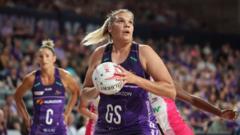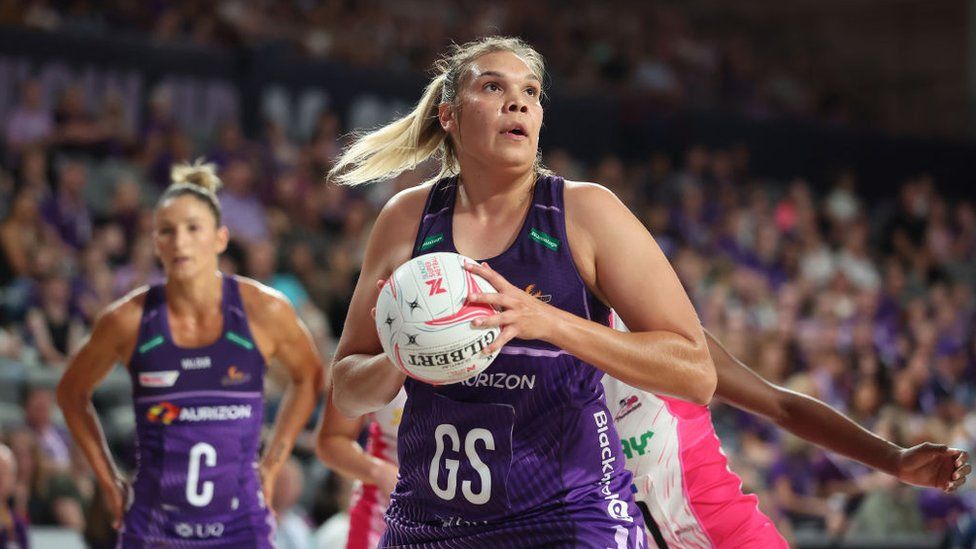
Next week, for the first time in more than two decades, an Aboriginal player is due to line up for Australia’s national netball team – the Diamonds.
It’s a historic occasion and a remarkable personal achievement for Donnell Wallam, who only began playing the sport professionally about a year ago.
But the moment has been overshadowed by an off-court showdown between the team and a firm owned by Australia’s richest person, after Ms Wallam privately raised concerns about its Indigenous record.
Mining heiress Gina Rinehart is one of the biggest private investors in Australian sport.
And Netball Australia (NA) really needs money – it is up to A$11m ($6.9m; £6m) in debt.
Ms Rinehart’s company Hancock Prospecting is scheduled to chip in A$15m over four years to help the Diamonds remain one of the world’s most dominant sporting teams. In return the company’s logo will feature on the Diamonds’ uniforms, it was announced last month.
But the logo was noticeably missing when the Diamonds took to the court last week.
‘Sisters in arms’
Though she hasn’t spoken publicly, Ms Wallam – the squad’s only Aboriginal player – is widely reported to have told teammates she was uncomfortable wearing the logo.
She is said to be particularly concerned about racist comments made by Hancock Prospecting’s founder – Ms Rinehart’s father, Lang Hancock.
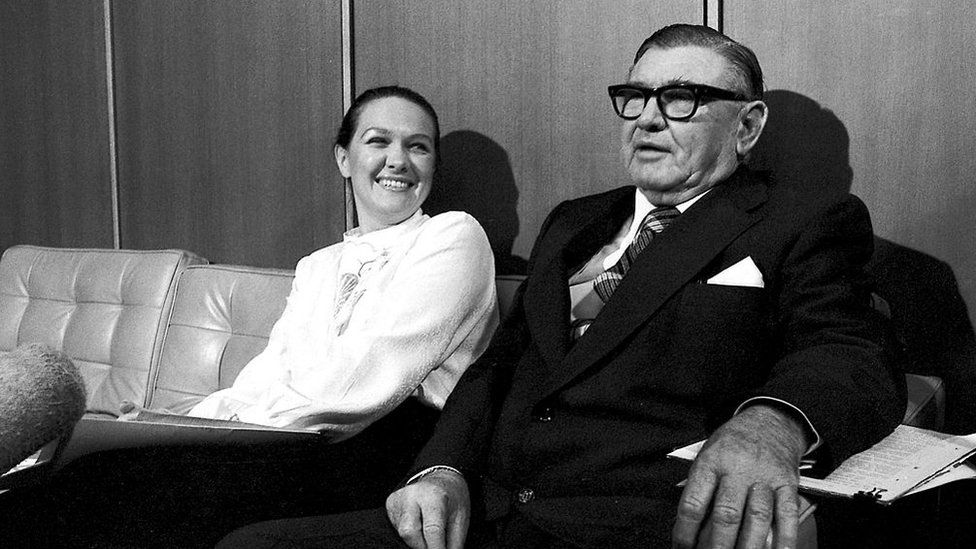
In 1984, as part of a TV interview, he suggested Aboriginal people should “breed themselves out”.
“I would dope the water up so that they were sterile… that would solve the problem,” he said.
More recently, the wider mining industry has also been accused of exploiting Aboriginal communities’ land and goodwill – though it’s unclear if Ms Wallam discussed this.
The goal shooter wanted to ask the sport’s governing body if she could wear the uniform without Hancock’s logo, according to multiple Australian media reports.
Ms Wallam’s teammates reportedly then refused to wear the logo, in solidarity with her.
Some were said to be concerned about climate change too – Hancock Prospecting is a huge fossil fuels supplier – but this was denied by NA sources in local media.
“The Diamonds have a ‘sisters in arms’ mantra,” Netball Players Association boss Kathryn Harby-Williams told The Australian. “The team did not want their teammate… to have to make her debut for Australia wearing a different uniform.”
The company has defended itself by saying it provides “very significant” royalty payments to Aboriginal traditional owners for mining their land. It also helps provide training and jobs in Aboriginal communities, a statement said.
On Tuesday, NA reiterated it wanted Hancock’s sponsorship, saying both parties had been “working tirelessly” to understand the concerns of “that squad member”.
But the pressure on the team has grown. Some people have praised the players, but others have defended Ms Rinehart as not responsible for the views of her father, who died 30 years ago.
And now players appear to be walking back their stance.
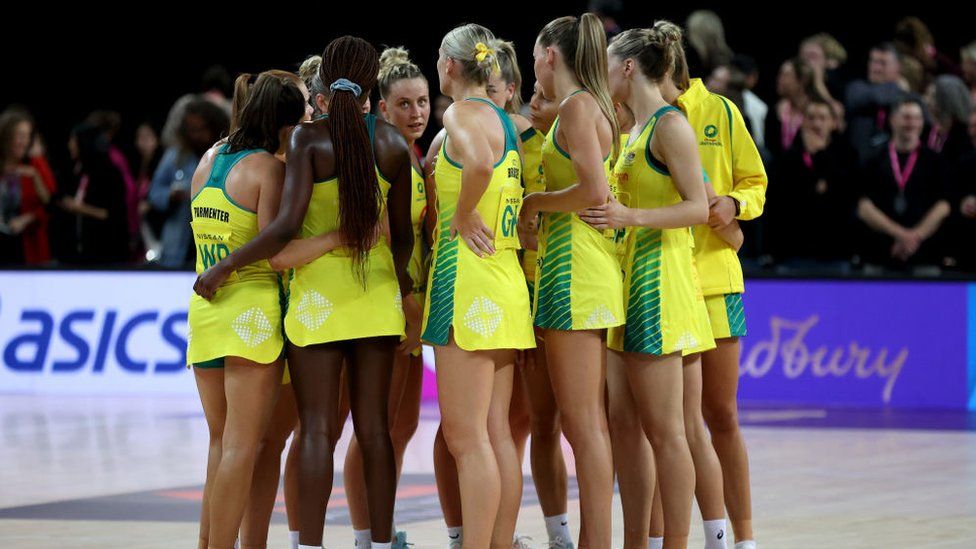
Diamonds captain Liz Watson said she was confident the situation would resolve “really soon”.
“The girls know that this is a really big investment in our sport,” she told the Australian Broadcasting Corporation (ABC) on Tuesday.
“It’s just working through [that] angst.”
‘Thrown under the bus’
Sharon Finnian-White was the last Aboriginal netballer to play for the Diamonds – in 2000 – and is a mentor to Ms Wallam. She believes the saga could have a simple solution.
“If Gina came out and said publicly: ‘I denounce what my dad said… that’s not my value set,’ I think Donnell would be okay with that,” she told the ABC.
But teammates who initially backed Ms Wallam now appear to have “thrown [her] under the bus”, Ms Finnian-White said.
“My understanding was that it wasn’t just about social justice, but environmental issues too… All of a sudden now, it’s all back on Donnell,” Ms Finnian-White said. “She must be feeling so isolated.
“This always happens to our people and I’m sick of it.”
Barry Judd, who researches Aboriginal participation in sport, said it’s a story he’s seen play out many times.
Ms Wallam’s teammates are in an extremely difficult situation too, he told the BBC: “Reading between the lines… they are probably getting some pressure.”
But it is frustratingly common to see Indigenous athletes bravely speak up – particularly on racism – only to end up being painted as villains, the University of Melbourne Pro Vice Chancellor said.
Dr Judd points to Australian Football League (AFL) champion Adam Goodes, who was “booed out of the game” in 2015, a few years after he confronted a young spectator who had racially abused him during a match.
“He very quickly became the baddie in the situation… a scary black man bullying an innocent teenage girl,” he said of Goodes, an Australian of the Year and two-time AFL best-and-fairest winner.
This video can not be played
To play this video you need to enable JavaScript in your browser.
Ms Wallam’s situation is similar, he says. “[She’s] the problem. It’s a full circle moment, because that’s what Lang Hancock called Indigenous people – a problem.”
Such incidents leave many Indigenous athletes feeling like public acceptance or affection is conditional on them being silent and grateful, he added.
It’s not just a netball problem. Many say it is a time of reckoning for racism in Australian sport.
Aboriginal people, especially women and girls, are less likely than the broader population to engage in organised sport.
The Super Netball league currently has just one current Aboriginal player – Ms Wallam – and only three have played for the Diamonds in their 84-year history.
NA says it’s committed to increasing Indigenous participation, but this week a former board member, Nareen Young, said racism exists “at every level” of the sport.
In a statement to News Corp Australia, NA said it took “any claim of racism extremely seriously”.
“Netball Australia made a public commitment [in 2020] to listen, learn and change by engaging with Aboriginal and Torres Strait Islander peoples and hearing about their experiences within netball,” it said, adding “this incredibly important work continues”.
But Dr Judd says the organisation’s handling of Ms Wallam’s issue is unlikely to help it address its diversity problem.
“This sends a very bad message to young Indigenous people… [that] ‘you’re not as important to us as corporate dollars and your points of view about how the sport should be managed and its future direction are not taken seriously.'”
-
-
21 September
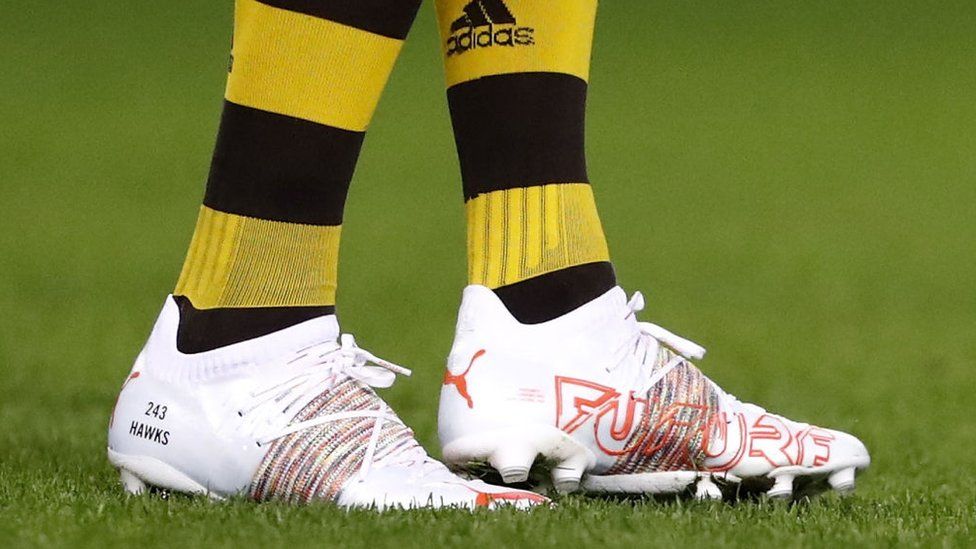
-
-
-
1 February 2021
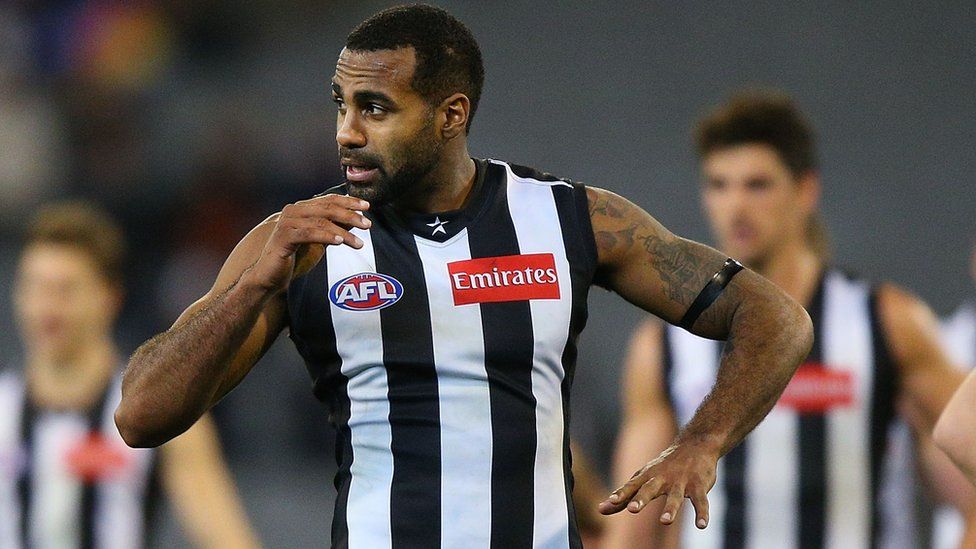
-

